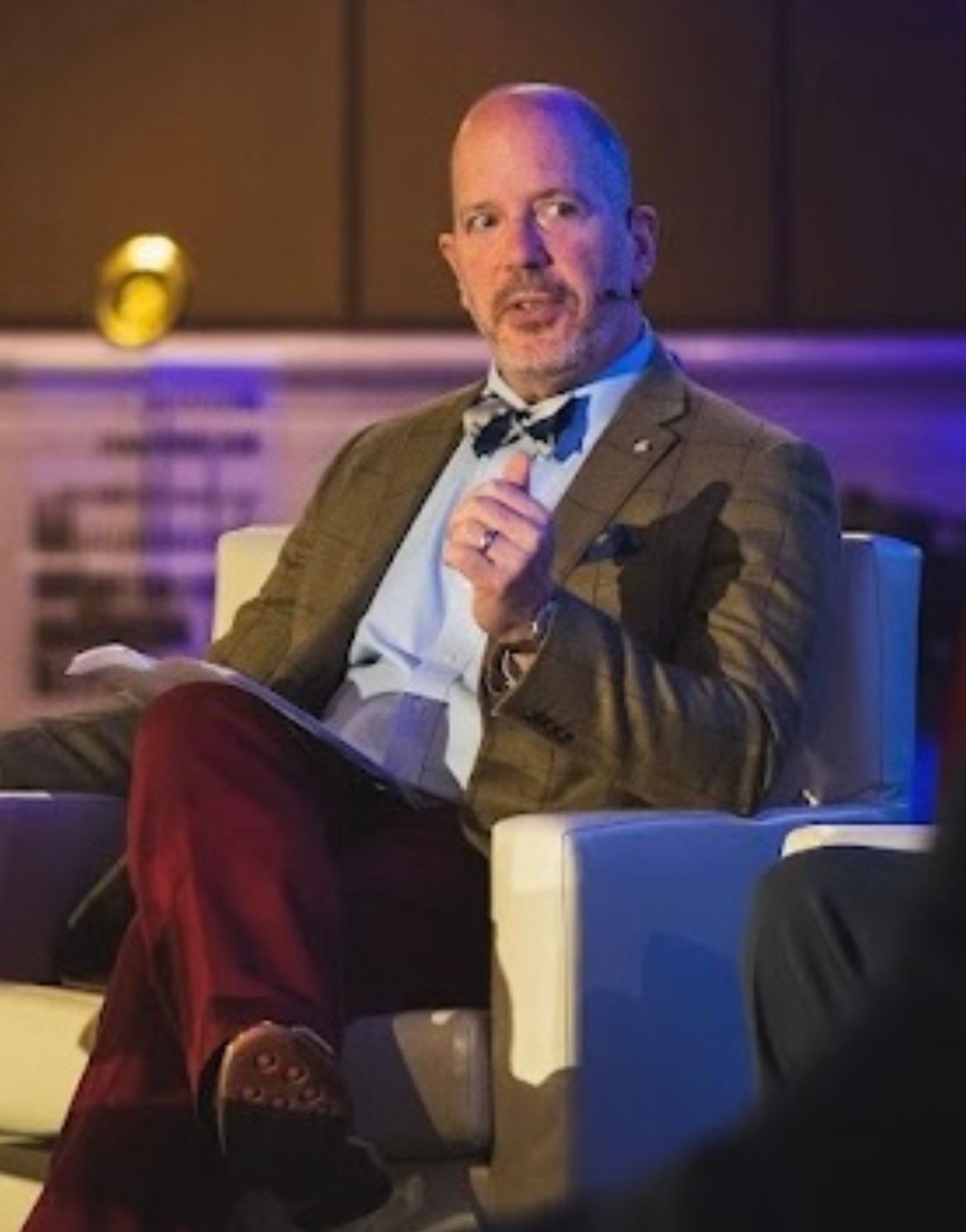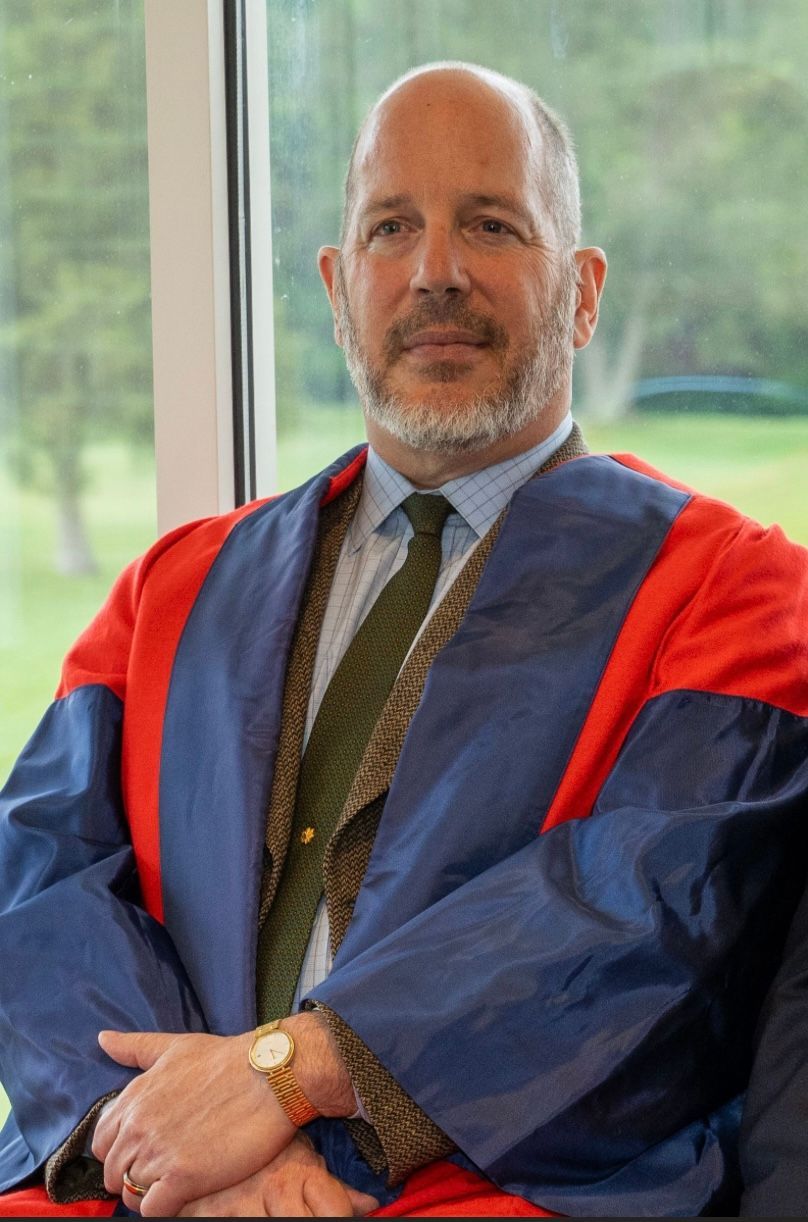ABOUT Dr. Christopher
Ashley Ford
The Hon. Christopher Ford is Professor of International Relations and Strategic Studies at Missouri State University’s School of Defense and Strategic Studies, a non-resident Senior Associate in the Geopolitics and Foreign Policy Department at the Center for Strategic and International Studies (CSIS), and a Distinguished Visiting Fellow at the Pharos Foundation at Oxford. Dr. Ford is also Principal of Two Ravens Policy & Strategy LLC, which provides support to U.S. Department of Defense customers. Additionally, Dr. Ford is a Non-Resident Senior Fellow at the Lawrence Livermore National Laboratory’s Center for Global Security Research, a member of the Advisory Board of the American Foreign Policy Council, a member of the Advisory Board at the Vandenberg Coalition, and a Distinguished Fellow, a member of the Advisory Board at the National Security Institute at George Mason University’s Antonin Scalia Law School, a member of the Global Security External Advisory Board at the Sandia National Laboratory, and a Fellow of the Royal Society of Arts. He is also the founding editor-in-chief of Missouri State University’s journal Defense & Strategic Studies Online (DASSO).
From January 2018 until January 2021, after unanimous confirmation by the U.S. Senate, Dr. Ford served as U.S. Assistant Secretary of State for International Security and Nonproliferation. He also exercised the authorities of the Under Secretary for Arms Control and International Security from October 2019 until his resignation from the Department on January 8, 2021. At State, Dr. Ford helped initiate and lead the Department’s reorientation to support U.S. competitive strategy vis-à-vis China and Russia, with a particular focus upon technology denial and national security export controls. He also realigned his bureau’s structure to improve support for this strategy, reformed its $265 million in nonproliferation capacity-building funding to tie it more to intelligence-informed threat assessments, and led new initiatives such as the “Creating an Environment for Nuclear Disarmament” dialogue. When performing the duties of the Under Secretary, Dr. Ford also approved hundreds of millions of dollars in U.S. arms transfers, including to Taiwan.
Dr. Ford served in 2017 as Special Assistant to the President and Senior Director for WMD and Counterproliferation at the U.S. National Security Council. There, among other things, he led development of the U.S. responsive strategy to Russian violations of the Intermediate-range Nuclear Forces Treaty and the Open Skies Treaty, contributed to the drafting of the 2017 U.S. National Security Strategy and the 2018 Nuclear Posture Review, and ran the Administration’s internal “Nuclear Vision Review” of disarmament policy.
Dr. Ford has also served on the staffs of the U.S. Senate’s Committees on Foreign Relations, Banking, Appropriations, Governmental Affairs, and Intelligence, and as staff director of the Permanent Subcommittee on Investigations. Additionally, he has been Principal Deputy Assistant Secretary of State, U.S. Special Representative for Nuclear Nonproliferation, a Senior Fellow at Hudson Institute, a Visiting Fellow at Stanford University’s Hoover Institution, and a MITRE Fellow and founding Director of the MITRE Corporation’s Center for Strategic Competition. Dr. Ford served from 1994-2011 as an intelligence officer in the U.S. Navy Reserve, leaving with an Honorable Discharge as a Lieutenant Commander.
A summa cum laude Harvard graduate with a doctorate from Oxford as a Rhodes Scholar and a law degree from Yale, Dr. Ford is a member of the Council on Foreign Relations, Chatham House, the American Society of International Law, and the International Institute for Strategic Studies. A longtime martial arts hobbyist, in the heyday of his training some years ago he attained the rank of third-degree black belt (Sandan) in Japanese Jujutsu, as certified by the Dai Nippon Butoku Kai organization in Japan. Dr. Ford has been a member of the Most Venerable Order of St. John since 2007, most recently being promoted by HRH Queen Elizabeth II to the rank of Commander in that order in 2017.
Dr. Ford is the author of three books – China Looks at the West: Identity, Global Ambitions, and the Future of Sino-American Relations (2015), The Mind of Empire: China’s History and Modern Foreign Relations (2010), and The Admirals’ Advantage: U.S. Navy Operational Intelligence in World War II and the Cold War (2005) – as well as a great many articles and monographs.
His work has appeared in many journals and periodicals, including the Cyber Defense Review, National Security Law Journal, Science & Diplomacy, Hoover Institution Press, Fletcher Forum of World Affairs, Military Law Review, International Security, Quillette, Lion’s Roar, Asia Policy, Nuclear Abolition Forum, Contemporary Security Policy, Rivista Italiana di Geopolitica, Bulletin of the Atomic Scientists, SAIS Review, International Journal of Korean Unification Studies, The New Atlantis, National Security Policy Proceedings, KAS Auslandinformationen, Nonproliferation Review, The Economist, Mongolian Journal of International Affairs, Joint Forces Quarterly ILSA Journal of International and Comparative Law, Journal of Strategic Studies, Michigan Journal of International Law, U.S. Naval Institute Proceedings, UCLA Law Review, Case Western Reserve Journal of International Law, Texas International Law Journal, Denver University Law Review, Wisconsin International Law Journal, and California Law Review.
A native of Cincinnati, Ohio, Dr. Ford and his family divide their time between Bethesda, Maryland, and West Palm Beach, Florida.

